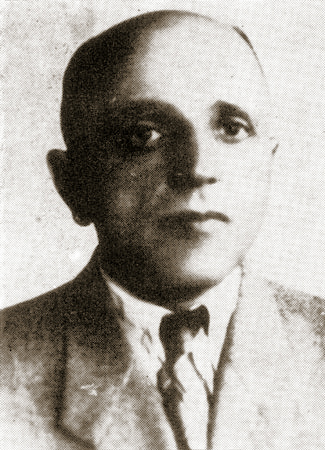After the Home Army (AK), the Peasant Battalions (BCh) were the largest underground armed organisation in Poland during the Second World War. The originator of the first military formation of the peasant movement in the history of Poland, numbering around 160,000 soldiers at its peak, was Franciszek Kamiński.
Kamiński was born on 20 September 1902 in Mikułowice, into a poor peasant family. He graduated from secondary school in Sandomierz, where he became involved in the scout movement. He took part in the Polish-Soviet War as a volunteer. After the war, he began studying mathematics and philosophy in Warsaw. There he met the peasant movement, and later became a member of the Polish Peasant Party “Wyzwolenie”. Among other things, he co-organised the Union of Rural Youth “Wici” and the Great Peasants’ Strike of 1937. During this period, he cooperated with Maciej Rataj, one of the leaders of the Peasants’ party. Apart from that, in the interwar period, he worked at the Stanisław Staszic Institute for Rural Education and Culture, the Association of Food Cooperatives “Społem” and the “Wieczór Warszawski” publishing house.
Immediately after the occupation of Poland by Germany and the Soviet Union in 1939, Kaminski became involved in creating structures of peasant resistance. Initially, he helped to set up underground organisations in Warsaw, and then went on to form the foundations of the peasant underground in the Kielce region. He tried to get peasant troops to cooperate with the Union of Armed Struggle (later the Home Army).
The idea of setting up a separate military organisation came to Kamiński’s mind in 1940, after talks with the ZWZ had failed. The initiative gained the support of the leaders of the underground peasant movement, and the originator himself was to take charge of the creation of the Peasant Battalions (BCh), after which he was given the post of their commander, which he held until the end of the war. The organisation resisted German deportations in the Zamość region. The BCh, in conjunction with AK forces, initiated the Zamość Uprising, which discouraged the Germans from continuing operations.
After the war, Kamiński was active on the board of the Polish People’s Party, even getting into the Sejm for a short time. However, on the wave of persecutions of the People’s Party organised by the communist authorities, and in the face of Kamiński’s refusal to self-criticise, he was imprisoned in 1950. He only left prison after the amnesty of 1956, working in agricultural cooperatives and, after his retirement, commemorating the peasant movement and the BCh.
After 1989, he took part in the reactivation of the PSL. He died on 24 February 2000 in Warsaw and was buried at the Military Powazki cemetery in Warsaw.





